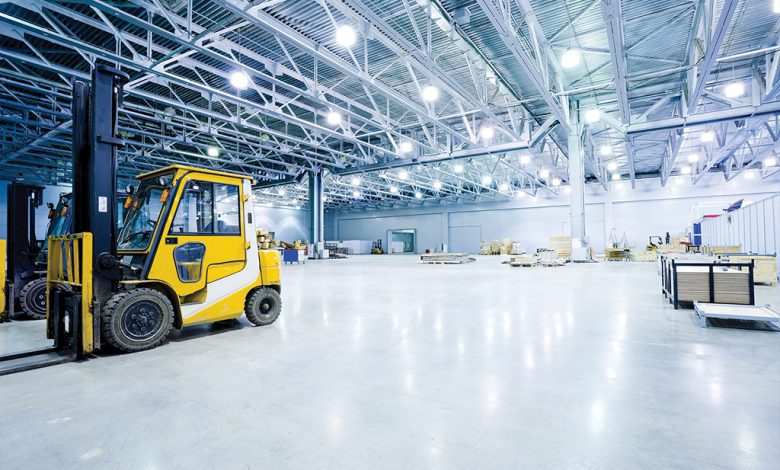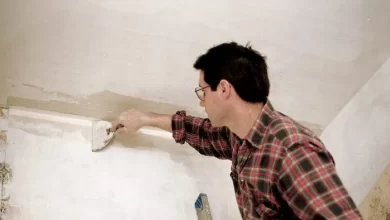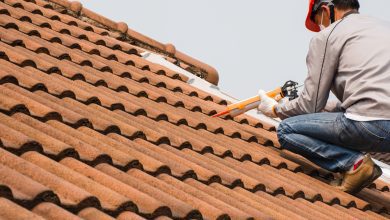5 Reasons Why You Should Consider Polished Concrete for Commercial Flooring
polished concrete

Polished concrete flooring is one of those materials that can transform a scene in a heartbeat. It is the perfect finish for restaurants and many commercial spaces that want to bring an industrial yet modern vibe to their environment. The reason polished concrete is a favourite of many is because of its versatility. It is not only used as interior flooring in business buildings like the offices, hotels and shopping centers, but is also seen as feature walls, large exterior panels and patio floors. Business owners can now save on their flooring budget, as polished concrete floors are very affordable in comparison to other flooring materials.
Polished Concrete – What Is It?
Polished concrete floors are quite similar to regular concrete you might see in residential basements however, it has a different finish. Though it can be cost efficient and more environmentally friendly, this type of flooring can also be more labour intensive. Polished concrete entails a combined and multistage process of physically grinding and honing the concrete. Polishing it with an abrasive together with a heavy-duty compound to cut the floor’s surface, then refined with each cut in order to achieve a specific level of look. Concrete polishing is a good alternative to granite, marble or wood flooring specially for commercial buildings. Polished concrete is low maintenance, long lasting and can be used in different spaces may it be residential or commercial. Although this material may appear especially slippery, it is safe for use in a variety of spaces so long as it is properly maintained.
Types of Polished Concrete
Platinum finish: It has a very durable look that needs the same amount of polishing as the silver finish to achieve its specified appearance. The resulting pattern from the polishing will give the concrete slab a beautiful and vivid shine. Platinum finish makes an elegant statement while creating a spacious look.
Gold finish: Also known as a salt and pepper finish, it is characterized by tiny gravel embedded throughout the floor, offering a light grinding process to expose aggregate. Gold finish type of polished concrete creates an aged look to any commercial spaces.
Silver finish: It is ground back to a depth of about 1mm– 3mm leaving the stones exposed to meet a durable and preferential effect. Surface is not polished. Instead it was left on its matt surface. The best way to care for a silver finish concrete is to keep it dust-free and regular cleaning with a soapy detergent.
Bronze finish: This is also known as a ‘Cream’ finish. This type of polished concrete embraces the natural texture and coloration of concrete slab. Instead of grinding the surface layer, it is simply rubbed with diamond pads. A soft sheen is achieved, which enhances and draws out natural hues and textures of the floor. In order to produce a smooth finish, the concrete floor must be even and undamaged. An uneven floor would require grinding, which would expose the aggregate.
Reasons to Consider Polished Concrete
Durable
An ideal flooring option for a commercial space has best to go with something hard wearing, it needs to be durable enough to withstand constant use. Polished concrete features a smooth and glossy finish that mimics natural stone slabs. It withstands heavy foot traffic on a daily basis and hardly shows signs of wear because of its high quality material base. Polished Concrete does not chip or crack easily since it is made from concrete – one of the strongest flooring materials.
Easy to Maintain
Cleaning a polished concrete floor is easy with the help of microfiber cloth that’s soft and can buff up dirt particles. It may require daily dust mopping and it will remove a lot of the messes that can ruin the shine or clarity of the floor. For those with automatic floor scrubbers, make sure to use a nonabrasive pad on polished concrete flooring – acidic or abrasive cleaning agents are proven ineffective and cause more harm than good in this case.
Protection Against Moisture Damage and Mould
Polished concrete is a better option than unpolished floors, especially with commercial buildings that will have a high foot traffic. This kind of floor finish grants added protection against moisture and mould damage while helping to prevent liquid spills from penetrating the surface. With proper maintenance, polished concrete flooring can prevent liquid spills from making its way through the pores on the floor. This reduces opportunities for mould or mildew to form.
Slip-resistant
One of the most important things to consider when determining a flooring option for commercial buildings is slip resistance. Polished concrete tends to be much less slippery than other materials such as Linoleum and marble. Even though it can be extremely smooth, polished concrete’s strong texture helps maintain a rough surface capable of gripping onto the bottommost layer of what’s sitting on top of it. In other words, it is not just the polish that gives this type of flooring its advantage; there are many unique attributes about it that’s made for easy walking and low chance of slipping compared to other flooring alternatives.
Environmental-friendly
Polished concrete is a great option for any environment, but especially when it comes to the indoors. It’s exceptionally eco-conscious, with no emissions and hardly any maintenance needed. It also does not emit volatile organic compounds like other floorings. It also doesn’t have issues with efflorescence – crystalline or powdery salt deposits that often form on surfaces during or after installation due to contact with moisture or water. A polished concrete floor will also have a natural, lustrous glow and sophisticated appeal that won’t be found in other kinds of floors like marble or even tile.
Key Takeaway
Concrete is an extremely durable and versatile flooring substance that is designed to last a lifetime. As an extremely low-maintenance material, polished concrete floors require very little cleaning and are environmental friendly, making it a popular choice for high-traffic commercial spaces.






